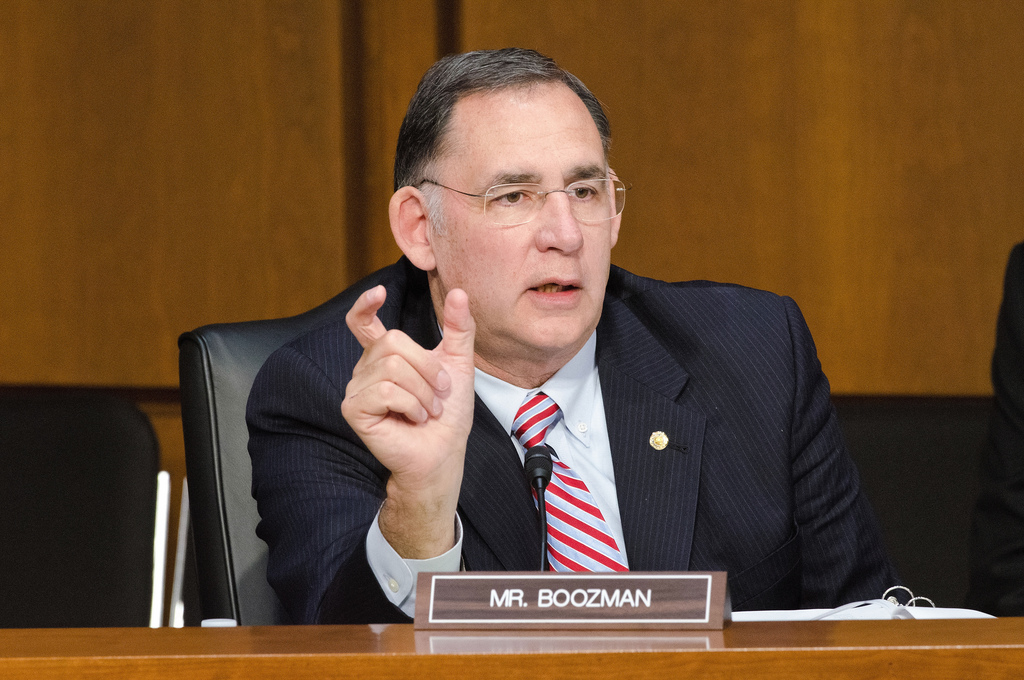 Arkansas Senator John Boozman
Arkansas Senator John Boozman
Jun 29, 2018
WASHINGTON, DC -- Yesterday, the Senate passed its version of the Farm Bill, the Agriculture Improvement Act of 2018 (H.R. 2, as amended), by a vote of 86-11. There were nearly 200 amendments filed for consideration, however, only two received a recorded vote, while 18 were incorporated through the substitute amendment and another 15 were incorporated through a manager’s amendment to the bill.
While the rice industry commends the leadership and hard work of Chairman Pat Roberts (R-KS) and Ranking Member Debbie Stabenow (D-MI) for moving a bill through the Senate, the bill does include provisions that would be detrimental to family farms if enacted by law. These provisions pursued by Senator Chuck Grassley (R-IA) resulted in the inclusion of language that is opposed by essentially every commodity group and farm organization in the United States.
Grassley’s provision further constricts actively engaged rules that would eliminate spousal rules, which could cut the help farm families might receive in half. It would also eliminate the special exemption for families, severely restricting the ways that farms might bring in the next generation. This could not be proposed at a worse time for farm families, as depressed crop prices have led to a 52 percent decline in net farm income.
Senator Grassley was successful in including language attacking non-family general partnerships and joint ventures in the 2014 Farm Bill. Based on preliminary calculations, nearly 5,000 of those farms, roughly 75 percent, already only have one manager due to regulations promulgated pursuant to the 2014 law. The remaining 1,500 or so farms that were impacted by the 2014 farm bill and its subsequent regulations have an entirely new set of rules that were just put into place in 2016. With the ink just drying on some of the most burdensome regulations in farm bill history, Senator Grassley’s latest attack seeks to sweep in 25,000 more family farms, subjecting them to a whole new layer of red tape.
Senator Grassley purports to reform the program so those individuals who aren’t farmers do not have access to the safety net but his relentless attacks now implicate nearly all farming operations – 94 percent of those affected will be family farms.
“While USA Rice is supportive of moving the 2018 Farm Bill process forward, we are deeply concerned that the nation’s farm families have yet again been undercut,” said Blake Gerard Missouri/Illinois rice farmer and chairman of the USA Rice Farm Policy Task Force. “Mr. Grassley’s efforts to dismantle the farm safety net and calling it reform is debilitating and disheartening, threatening the ability for family farms to survive.”
Overall, the Grassley provision discourages people from getting involved in production agriculture, especially the next generation of farmers. Our laws should encourage the next generation to stay involved in the family farming operation. Instead, Grassley brings down the heavy hand of government, branding them as “not real farmers.” At this pivotal tipping point of people leaving production agriculture amidst the recession in farm country, Grassley wants to double-down and exacerbate current conditions.
“USA Rice is extremely grateful for the work of Senators John Boozman of Arkansas and Cindy Hyde-Smith of Mississippi, both members of the Senate Agriculture Committee who have carried the voice of rice farmers throughout the farm bill process in the Senate. Our rice state Senators stood up for rice farmers and deserve a great deal of credit for ensuring that no further damage occurred to the farm safety net,” said Joe Mencer, Arkansas rice farmer and chairman of USA Rice Farmers. “Without their support, rice and other commodities produced in the Mid-South would have not have fared well in this process.”
Next up in the process is conference committee. USA Rice will work toward stripping Grassley’s harmful provisions from the final bill text. The deadline for successful, on-time conference action and the President to sign this farm legislation into law is September 30.